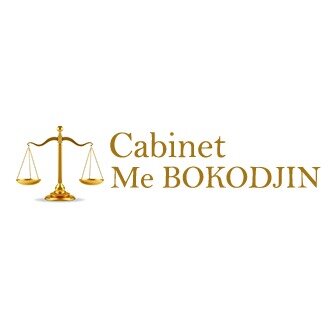Best Restructuring & Insolvency Lawyers in Togo
Share your needs with us, get contacted by law firms.
Free. Takes 2 min.
Or refine your search by selecting a city:
List of the best lawyers in Togo
About Restructuring & Insolvency Law in Togo
Restructuring and insolvency law in Togo covers the legal procedures and frameworks that help businesses and individuals manage financial distress. These laws provide options for companies to reorganize their operations, negotiate with creditors, and, if necessary, declare insolvency or bankruptcy. Togo is a member state of the Organization for the Harmonization of Business Law in Africa (OHADA), and its restructuring and insolvency procedures are primarily governed by the Uniform Act on the Organization of Collective Proceedings for Clearing Debts (OHADA Insolvency Act). The goal of these laws is to balance the interests of debtors and creditors, ensure fair treatment for all parties involved, and promote economic stability.
Why You May Need a Lawyer
Legal advice is essential in restructuring and insolvency situations because the legal landscape is complex and the stakes are high. You may need a lawyer if:
- You are a business owner facing liquidity problems or ongoing losses and want to know your options.
- You are an individual unable to pay debts and need to understand the consequences and possibilities.
- You are a creditor whose debtor is becoming insolvent and need to protect your financial interests.
- You are considering restructuring your business to avoid insolvency and want to develop a viable plan.
- You have received notice of insolvency proceedings or are involved in negotiations related to debt repayment.
- You are unsure about your rights and obligations under OHADA regulations or Togolese law regarding insolvency.
- You are facing cross-border insolvency issues involving assets or creditors outside Togo.
- You are concerned about the risk of personal liability as a company director or executive.
A lawyer can help you understand the processes, represent you in negotiations or court, and propose strategies tailored to your situation.
Local Laws Overview
Togo applies the OHADA Uniform Act on insolvency and restructuring, which aims to harmonize business laws among member states. Key aspects of local laws include:
- Collective proceedings: Formal procedures for managing creditors' claims when businesses or individuals cannot meet their financial obligations. This includes conciliation, preventive settlement, receivership, and liquidation.
- Out-of-court procedures: Preventive settlement (reglement preventif) allows debtors to seek an amicable agreement with creditors to restructure debts and restructure business operations without court intervention.
- Receivership (redressement judiciaire): A court-supervised process to help viable businesses recover, involving debt repayment plans, business reorganization, or asset sales.
- Liquidation (liquidation des biens): When reorganization fails or is impossible, the business assets are sold, and proceeds distributed to creditors according to legal priorities.
- Creditors’ committees: Groups representing creditors' interests may be formed to oversee the process and negotiate arrangements.
- Court involvement: Commercial courts play a central role in approving plans, appointing administrators, and ensuring fair processes.
- Director liability: Directors can be held liable for misconduct or for contributing to the insolvency through mismanagement.
- Protection for employees: Labor laws provide some protection for employee claims in insolvency situations.
Navigating these processes requires careful attention to procedural rules, deadlines, and documentation.
Frequently Asked Questions
What is the difference between restructuring and insolvency?
Restructuring involves reorganizing a business's operations or finances to avoid insolvency and continue operating. Insolvency means a person or business cannot pay their debts as they become due, often leading to legal proceedings such as liquidation or receivership.
What law applies to insolvency cases in Togo?
Togo's insolvency procedures are governed by the OHADA Uniform Act on the Organization of Collective Proceedings for Clearing Debts, which applies to all member states including Togo.
Who can file for insolvency in Togo?
Both individuals and businesses (sole proprietors, companies, or partnerships) unable to pay their debts can initiate insolvency proceedings. Creditors may also file if they are owed money.
What is the preventive settlement procedure?
This is an out-of-court process where a debtor seeks an amicable agreement with creditors, supervised by a court-appointed conciliator, to restructure debts and business activities without formal insolvency proceedings.
Can a business continue to operate during insolvency proceedings?
Generally, yes. During receivership or preventive settlement, a business may continue operating under court supervision while seeking solutions with creditors.
What happens to employees during insolvency?
Employee claims, such as unpaid wages, have a degree of priority in insolvency proceedings. However, jobs may still be at risk if the business cannot be saved.
How are creditors paid in insolvency?
Creditors are paid according to a strict order of priority established by law, starting with secured creditors and employees, followed by unsecured creditors. Sometimes, not all creditors are paid in full.
What are the risks for company directors?
Directors can face personal liability if they are found to have mismanaged the company or acted in bad faith, worsening the financial situation leading to insolvency.
How long does insolvency or restructuring take?
Timelines vary depending on the complexity of the case. Preventive settlements and restructurings can take a few months, whereas full liquidation may take longer depending on asset sales and creditor claims.
Is it possible to avoid bankruptcy by restructuring?
Yes. One of the main purposes of restructuring laws is to help viable businesses recover and avoid bankruptcy by reorganizing operations and negotiating new payment terms with creditors.
Additional Resources
For more information and assistance with restructuring and insolvency in Togo, you can contact the following:
- OHADA National Commission in Togo: Provides information on OHADA laws and local procedures.
- Commercial Court of Lomé: Handles insolvency and restructuring filings.
- Ministry of Justice of Togo: Offers general legal information and referrals to authorized professionals.
- Bar Association of Togo: Lists qualified lawyers who can assist with insolvency and restructuring cases.
- Chamber of Commerce and Industry of Togo: Offers support to businesses facing financial difficulties.
- Licensed insolvency administrators and accountants: Can provide specific financial and legal advice.
Next Steps
If you are facing financial difficulties or involved in a restructuring or insolvency situation in Togo, consider these steps:
- Gather all relevant financial and legal documents, such as financial statements, contracts, and debt records.
- Assess your financial position and identify potential options for restructuring or resolving debt issues.
- Contact a qualified lawyer experienced in OHADA and Togolese insolvency law to discuss your specific circumstances.
- Seek advice before making any major decisions, such as selling assets, dismissing employees, or negotiating with creditors.
- If formal proceedings are necessary, ensure you comply with all legal requirements and procedural deadlines.
Prompt legal advice can help protect your interests, maximize your chances of recovery, and minimize potential liabilities. Do not hesitate to seek professional guidance at the first sign of financial distress.
Lawzana helps you find the best lawyers and law firms in Togo through a curated and pre-screened list of qualified legal professionals. Our platform offers rankings and detailed profiles of attorneys and law firms, allowing you to compare based on practice areas, including Restructuring & Insolvency, experience, and client feedback.
Each profile includes a description of the firm's areas of practice, client reviews, team members and partners, year of establishment, spoken languages, office locations, contact information, social media presence, and any published articles or resources. Most firms on our platform speak English and are experienced in both local and international legal matters.
Get a quote from top-rated law firms in Togo — quickly, securely, and without unnecessary hassle.
Disclaimer:
The information provided on this page is for general informational purposes only and does not constitute legal advice. While we strive to ensure the accuracy and relevance of the content, legal information may change over time, and interpretations of the law can vary. You should always consult with a qualified legal professional for advice specific to your situation.
We disclaim all liability for actions taken or not taken based on the content of this page. If you believe any information is incorrect or outdated, please contact us, and we will review and update it where appropriate.
Browse restructuring & insolvency law firms by city in Togo
Refine your search by selecting a city.











